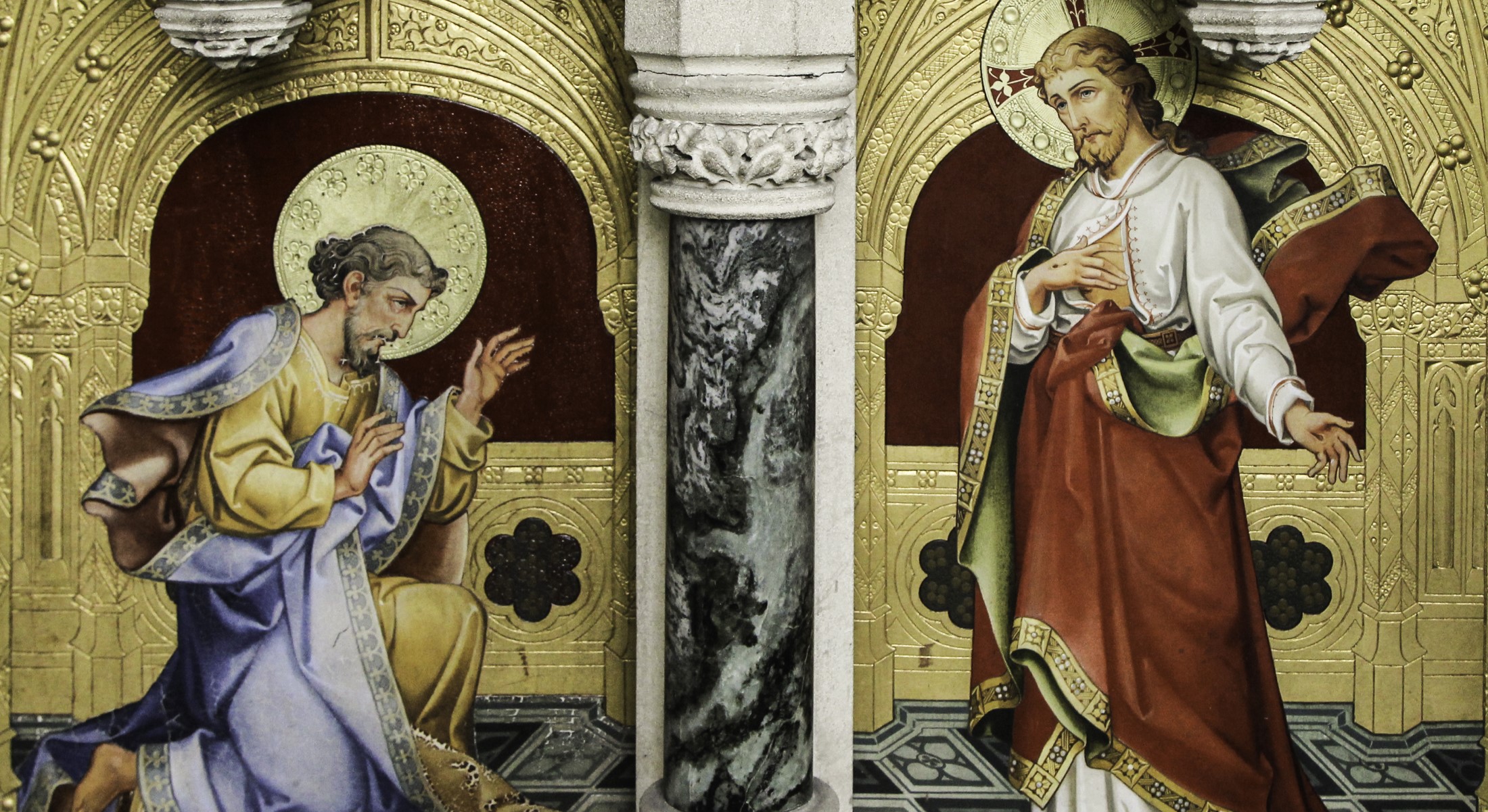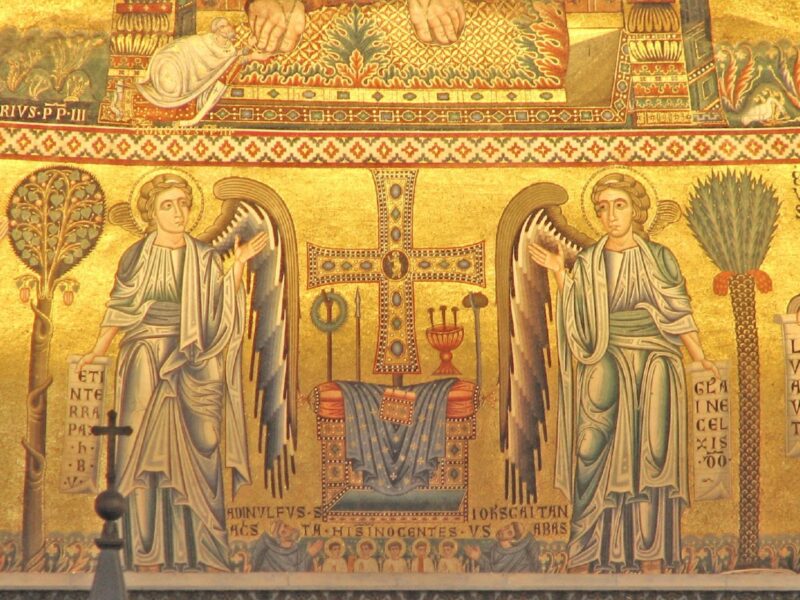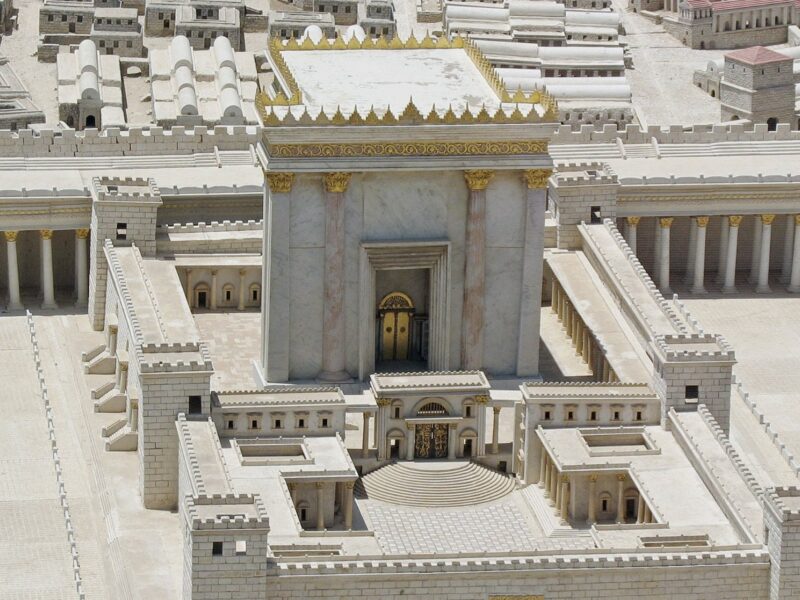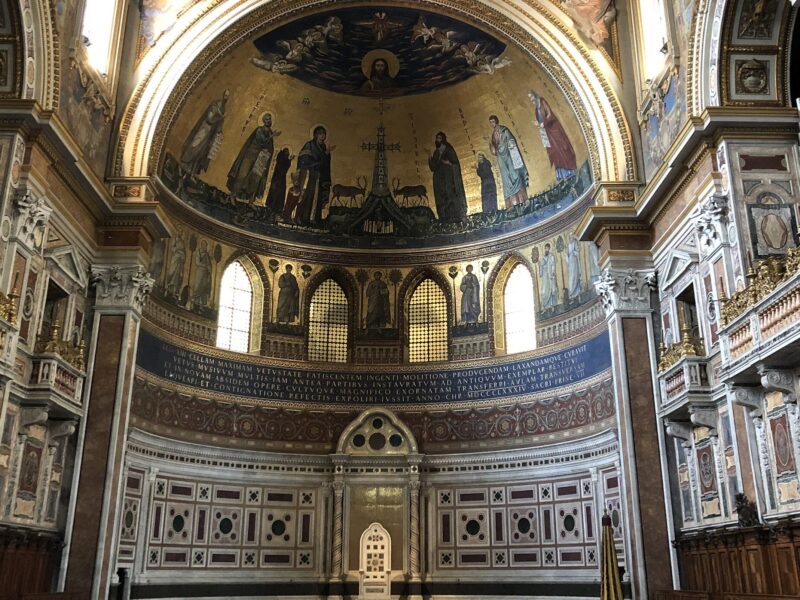
To Walk in His Way
Second Sunday of Easter. Fr Andrew Brookes considers the faith journey of the Apostle Thomas.
The Resurrection Appearances of Jesus are full of surprises from the perspective of their recipients. It shows in their reactions on nearly every occasion. Recorded for us in the accounts, it adds to their credibility: this is not the stuff of self-suggestion, consciously willed, or subconsciously desired. By contrast, from Jesus’s perspective, I am sure that it was all carefully planned.
In regard to today’s Gospel that means of course that Jesus appeared in the Upper Room on Easter Sunday evening knowing that Thomas, alone among the remaining eleven apostles was not present. The appearance was an overwhelmingly positive experience for the ‘Ten’, bringing them peace and assurance after they had all abandoned Jesus in Gethsemane, and a renewal of the calling to be sent out by Jesus, this time with the gift of the Holy Spirit breathed upon them.
Despite them sharing the news with Thomas, it is easy to see how he would feel left out, and wonder why. We might wonder at a human level why he was not there, full of fear, hiding from the Jewish authorities. The previous information that the Evangelist has given us about Thomas may cast some light on this and these resurrection episodes. When Jesus, in the context of facing death threats, makes plain he will go up towards Jerusalem to visit Bethany, Thomas says ‘Let us go up to die with him!’ (Jn 11:16) The statement expresses bravery if also misunderstanding, but it does mark him out as not overly fearful. He is intent on following Jesus closely, no matter the personal cost. Thomas’ desire to follow Jesus along the way he will go also finds expression also at the last Supper. (See Jn 14:1-7)
I wonder if Thomas out and about, less fearful than the others, half hoping to be arrested and killed, so he can follow the way of his Master, at least unto death, and perhaps now beyond death. Maybe he thought he would be more likely to find and embrace the will of God on the streets, rather than hiding in upper room? The appearance of Jesus in the Upper Room would challenge but also upset his thinking.
When he is excluded from the Resurrection Appearance, does he wonder, with Judas already removed from his post, if he too has now been removed from his post, perhaps due to rash if well-intentioned presumption of courage?
Whatever his doubts or questions, his mindset is radically changed when Jesus appears the following Sunday, on the eighth day. Jesus repeats the words that Thomas had spoken in the absence of Jesus. This unnatural – indeed supernatural – knowledge expressed by Jesus, plus the clear physical presence of Jesus and the unflinching invitation to touch him, brings Thomas to his knees and to faith. He applies key Jewish terms for God, the Tetragrammaton (YHWH, ‘Lord’) and Elohim, ‘God’, to Jesus. Thomas asked for proof of his ongoing living visible humanity; he confesses his belief in his eternal living invisible divinity. It is a classic and full confession of Jesus.
Jesus goes on to point out that Thomas believed because he had seen. Jesus’s words that follow, in which he approves and blesses those who will believe without seeing looks to all those who will believe on the testimony of the apostles. In effect, if Thomas had chosen to believe on the evidence of the other apostles, he could have had the privilege of being the first such recorded person! As it is, he has the experience of his own struggle to accept the testimony of others, and the failure or misplacing of his courage, as useful experiences to help others come to belief in Jesus as part of his ministry by which he will truly walk in way of Lord as planned by the Lord for him!
Jesus always knew he would only visibly appear to a few witnesses, chosen beforehand, and after that people would be invited to believe on the word of their testimony. But the word of their testimony is not just words looking back to a past memory but expressing an ongoing relationship with a Living Lord, who reigns from Heaven, and who lives and reigns in their hearts. After that first generation, people would be invited to rely on the written words of the Gospel and the ongoing faith of each generation of disciples.
This pattern of believing continues. We are asked to believe on the basis of the apostles’ testimony recorded in the Scriptures, on the testimony of other believers over the centuries and those around us now, especially those who speak to us of their faith, and also because the invisible Risen Lord and his Holy Spirit work at least small signs for us, and make their presence felt and seen and known to us, and who stir up faith, hope and love in us, prompting us to exclaim to Jesus ‘My Lord and My God’. In turn we become witnesses, sharing our testimony, walking in the way of the Lord for us, telling of the Living Lord Jesus to others, and inviting them to confess him, to believe, know and love him, and so to receive eternal life, to follow Jesus and to walk in his Way, like Thomas.
Readings: Acts 5:12-16 | Apocalypse 1:9-13,17-19 | John 20:19-31
Image: detail from a side-altar frontal by Bentley in St Cuthbert’s Seminary, Ushaw, photographed by Fr Lawrence Lew OP



Frances Flatman
Interesting perspective that i had not looked at previously thank you
Catherine
I’m wondering why Thomas, who wanted to go to Jerusalem with Jesus and die there with him, didn’t stay at the cross with St John to show loyalty and support for Jesus.
Andrew Brookes
Dear Catherine,
thanks for the question. Most likely, like all the apostles, he lost his nerve when the group of guards arrived at Gethsemane, and ran away. My suggestion, based on his earlier comment, is that (perhaps remembering those earlier words) he went out and about on the streets, perhaps hoping to be recognised, arrested and even killed, so making amends and honouring his earlier commitment.
This (and what follows) is all somewhat speculative but it is not unlikely that the Evangelist would intend all the words and actions associated with Thomas to be read together. In the end, Jesus first appears to the apostles filled with fear in the Upper Room, offering them peace (which implies forgiveness). This is also an expression of mercy since he addresses their need to overcome their fear. In the light of this he commissions them as ministers of mercy and forgiveness to others.
Whether or not Thomas was particularly unbelieving in the Resurrection, he would feel hurt to have missed out on the appearance of Jesus and the blessings it brought to the apostles. (It is not long before having seen the Risen Jesus becomes a criterion for being recognised as an apostle.) Over the course of the intervening week, he may have had time to reflect and reconsider whether the way of Jesus ended with his physical death, and whether the way of following Jesus likewise should be focussed on exercising courage in martyrdom , or whether there might indeed be a longer and fuller way of following Jesus. He would have had time to reflect on the limits of his courage, and his own need for mercy, and perhaps begun to open up to a way of being courageous founded on the mercy and forgiveness of Jesus and the help of the Risen Lord and the Holy Spirit. Jesus repeats to him the words he had spoken in the physical absence of Jesus, and coupled with the presence of the Risen Jesus, this brings Thomas to confess Jesus as Lord and God. Jesus had earlier said to Thomas that Jesus himself is the Way, the Truth and the Life (Jn 14:6). Believing in him as God and Lord, believing his way leads through death to resurrected and eternal life, accepting it humbly as Divine mercy and then living in communion with he who is God in human form, is the way to live and do the will of God, by which we witness to him and bring others to that same truth and communion with God in and through Jesus, a calling that calls for grace-blessed courage. It is a calling Thomas fulfilled fruitfully, to (as Tradition maintains) the shedding of his blood many years later.